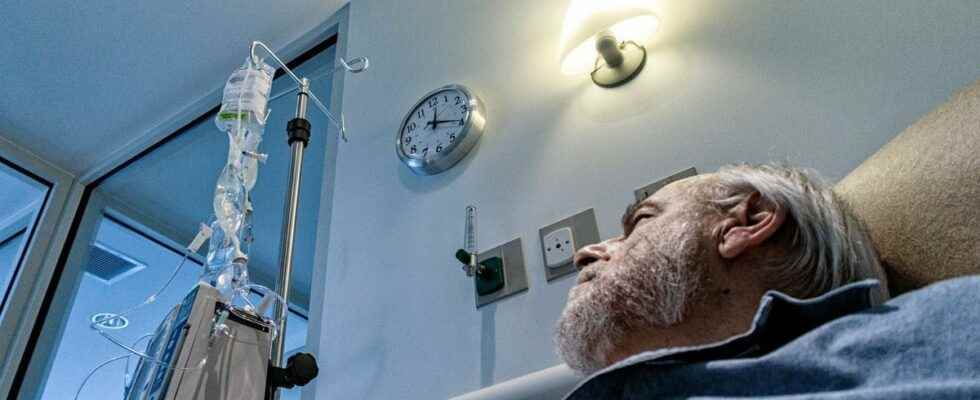Posted ,
Reading 2 mins.
According to a new trial published in the medical journal New England Journal of Medicine, patients with rectal cancer are all in remission after receiving a new treatment: dostarlimab. However, this is a small study whose results have yet to be confirmed.
The trial is small, but the hope is great. The study conducted by doctors at Memorial Sloan Kettering unveiled promising results on Sunday: all participants with rectal cancer and treated with dostarlimab are now in remission.
Rectal cancer: dostarlimab, a new miracle treatment?
Admittedly, the trial — led by doctors at Memorial Sloan Kettering and backed by drugmaker GlaxoSmithKline — was conducted on very few patients (12 in total). But the results were promising enough for different cancer specialists to look into the subject.
Dr. Alan P. Venook, a colorectal cancer specialist at the University of California, San Francisco, said “that was a great first” in the medical environment.
The patients treated, however, had specificities: they all had rectal cancer (stage II or III rectal adenocarcinoma) which had not spread beyond the local area and their tumors all presented with a mutation affecting the ability of cells to repair DNA.
During the study, the drug used, dostarlimab, was administered to the patients every 3 weeks for 6 months. After this time, patients had to undergo chemoradiotherapy and surgery – if the treatment was not deemed effective enough.
The 12 patients are in remission
Results ? All 12 patients had a complete clinical response, with no serious side effects or signs of tumor on imaging. They are all, therefore, in remission.
“There were many tears of joy“said Dr. Andrea Cercek, oncologist at Memorial Sloan Kettering Cancer Center and co-author of the article.
“In this type of rectal cancer, blocking PD-1 might be able to replace chemotherapy, replace chemotherapy and radiation therapy, or replace chemotherapy, radiation therapy and surgery“, she said. The results of the study suggest that the third possibility could become a reality.
Despite these promising initial results, “longer follow-up is needed to assess the duration of treatment response.”.
Consult an oncologist online
Rectal cancer: current treatments
Depending on each situation, different types of treatment can be considered, alone or most often in combination. However, surgery remains the main treatment for cancer.
Local excision is usually done to remove the tumor or polyp and a small amount of surrounding tissue. If the surgeon discovers cancerous cells in the removed tissue, then he performs a bowel resection (removal of a segment of the small intestine).
The type of bowel resection performed depends on the location of the tumor and the stage of the cancer.
The patient may also seek other treatments such as chemotherapy, radiotherapy or chemoradiotherapy (radiotherapy and chemotherapy).
In this case, the goal is usually to reduce the size of the tumor, before operating. The dose of radiation/chemotherapeutic agents given depends on the location of the tumor and the spread of the cancer.
